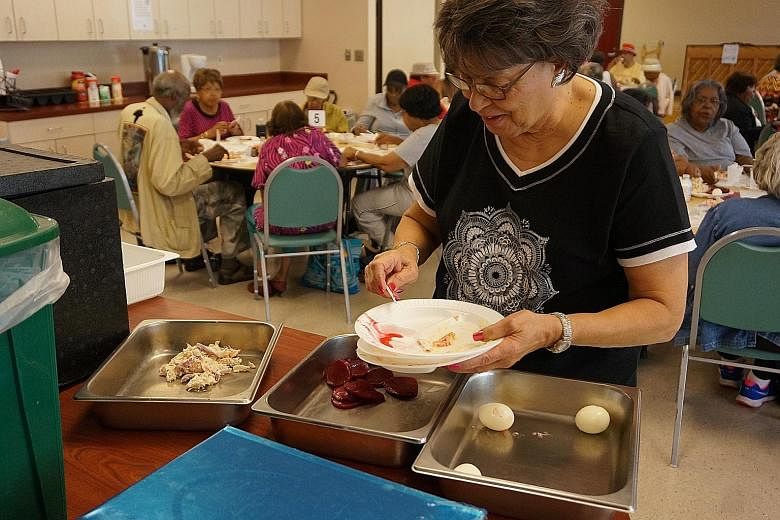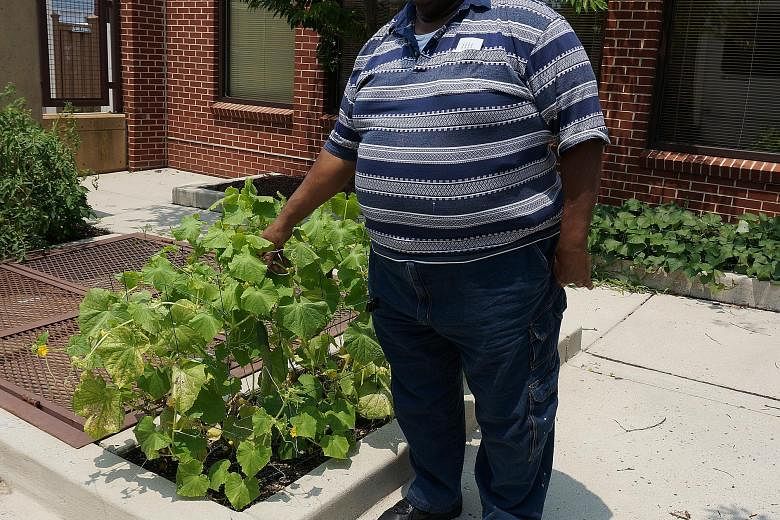WASHINGTON • When Ms Phyllis Palmer, 65, is done with her meal at the Hattie Holmes Senior Wellness Centre, she heads over to the counter to separate the food she hasn't eaten - the hard-boiled egg goes in one pan, the beets in another, and the tuna in yet another.
The food waste is weighed, recorded, then composted for use in the centre's community garden.
This new programme, started by the National Foundation to End Senior Hunger, is an attempt to identify food items that seniors do not eat, so that menu changes can be made, and food waste reduced.
The foundation, which has been running the programme in three centres since last September, has already made menu changes. For example, said the organisation's executive vice-president Peggy Ingraham, some milk has been replaced by other sources of calcium because many of the seniors are lactose-intolerant.
"If we didn't have this programme, the money spent on milk would have gone down the drain, and their calcium needs would not have been met," said Ms Ingraham.
The programme can help meal providers save "at least 10 per cent of their food budget".
"That means serving food to 10 per cent more folks. That is a lot," she said.
Not only has the programme helped with the bottom line, the seniors too are benefiting from getting involved in the project.
"In the beginning there was some confusion, but the seniors have really taken ownership and we really see the benefits," said Ms Teresa Moore, director of Hattie Holmes.
The seniors now use the compost in the garden, and a gardening club of around 15 seniors has sprung up.
Mr Roselle Watts, 70, was eager to show The Straits Times the various plants he and his friends had grown including tomatoes, cucumbers and mint. He is at the centre five days a week and waters the plants every two days. "We had some radish for lunch and mint tea," he said proudly.
The foundation says it hopes to expand the project to other centres by the end of the year and get more seniors involved.
"It is not a silver bullet but it is a start," said Ms Ingraham.
Melissa Sim


